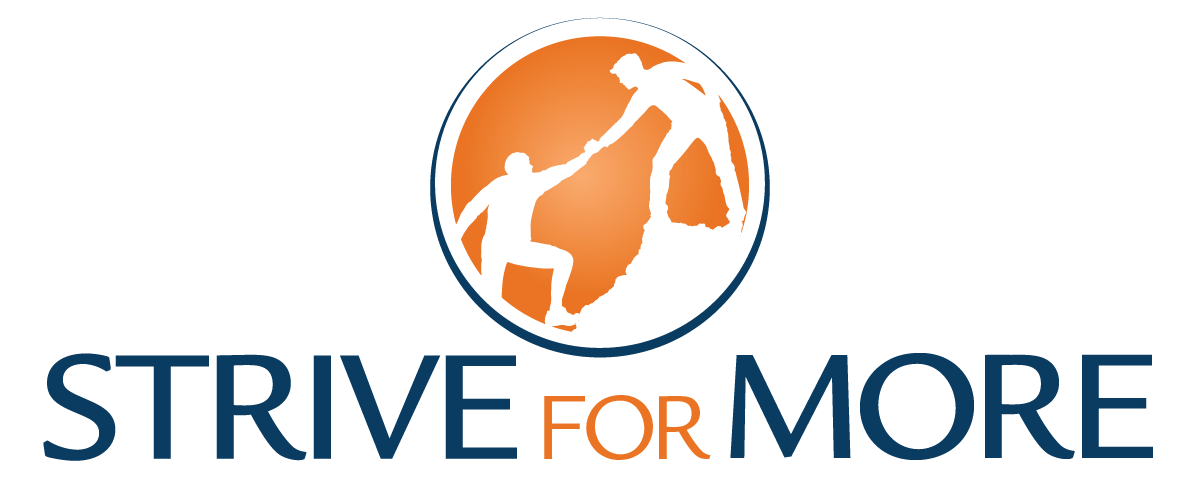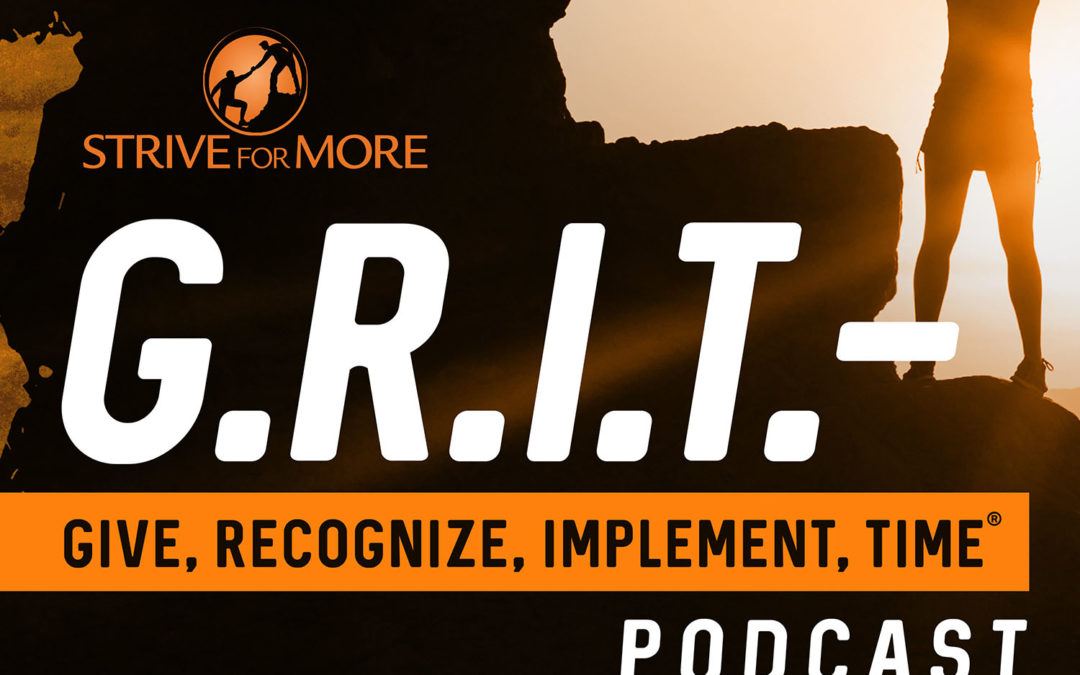Episode Transcript
Happy new year everybody. I’m Steve Nathenson, CEO and founder of Strive For More, and today I want to talk about leadership and management. How are they different? It’s one of the most common questions that I get asked about leadership. What does it mean? How do I do it? What is the difference? The way I like to illustrate that is through a simple fill in the blank. So if I were to give you this hypothetical, leadership is, blank, oriented and management is, blank, oriented and your two word options are people and tasks, which word would fill in which blank? So I’ll give you a moment to think about that.
As you thought about it, curious to hear what came to mind for you. Typically, the answers that I get are leadership is people oriented and management is task oriented. And that’s spot on. That’s really the key difference. Leadership deals with really truly invoking people to take action whereas management is simply delegating and getting tasks done regardless of the human interaction partner. A great example of that honestly is the past couple years work has really become transactional. What I mean by that is throughout the pandemic and remote work, we’ve missed that in-person connection. The water cooler talks, the impromptu conversations, the personal touch. Now for the most part, when people reach out to each other in a work capacity, it’s all work related. I need this done. We have to talk through this. This has to happen. It’s become very, very transactional. And they’ll ask, how do you feel about that? Are you missing that personal touch? Do you want to go back to in-person because it brings that kind of interaction and connection? Most people say yes because we are missing the people part.
When we talk about leadership versus management, the people aspect is absolutely critical. Management is simply orienting what tasks need to be done by whom, when, how, and keeping on top of that. It’s really devoid of the human touch. Often if a individual’s pure management comes across as you need to do this, go do your job, go forth and prosper. I don’t care how you get it done. End of story. And I say it in that way because while we may not say it in that exact phrase or that exact tone, that’s typically how it comes off to people. Transactional leadership is truly management. It’s devoid of that personal touch. We don’t inspire folks. We don’t engage them. We don’t call them towards action because we’re missing that connection. And that right there is the [inaudible 00:03:23].
So let’s talk about leadership for a second now that we’ve talked about management. What is leadership? It’s a hard concept to define because it is a concept. Now, it’s a concept that we all inherently have a understanding of, but it’s often hard to describe. Just like if I was to ask you what love means. Love is a human concept. Yes, it’s an emotion and a feeling, but it’s a concept that we’ve created. And it’s often hard for people to tangibly define that. And it’s the same with leadership. We may think that we know what it means, but when we go to verbalize it or literally define it, it’s hard for us to do because it is a concept that does come with some lack of clarity. So let me help try to overcome that and give you my definition of leadership.
For me, leadership is simply the ability to inspire others to be a part of something greater than themselves. What causes me to define leadership in that way is we’re really starting to tug on people’s heartstrings, their values, what is truly meaningful and powerful to them to evoke them towards action. To make them feel a part of something that goes beyond just them to a greater purpose and gives them that fulfillment. And in order to do that, we need to be able to connect with people, to relate to them, to be able to understand what motivates them and then go even further and inspire them by being who we are, by leading by example, by not just talking the talk but also walking the walk.
That’s what leadership truly means for me. And it illustrates within that definition the key difference, again, between leadership and management is that missing piece of the personal touch, the connection. I can order people all day long and that’s all it’s going to be is orders. And that’s going to be management. But if I truly connect with people, they’re going to be willing to do things, not because I’m telling them to do it because they want to do it. And there’s power in that connection. And that only comes from truly leading people versus just managing them.
And what is causing us to have this conversation not only is it a common question, but it’s also one of the things that I think we’re seeing in terms of this great resignation. People leave jobs for a number of reasons. And one of the most highly quoted reason is people quit people, not jobs. It’s bad management, or in reality, it’s bad leadership. So it’s important to understand the differences so that we as leader ourselves can see and look inwards, what am I doing? Am I leading or am I just managing? That answer can help guide you to overcome some common hurdles of not connecting with your people, increasing the performance of people, helping you guys strive to a mission and a vision and a purpose that is going to take care of the rest.
Yes, we’re all beholden to certain goals or benchmarks or OKRs. Whatever your organization may use, there are things that we need to achieve as leaders and we are going to be held to those, but there’s a multitude of options to get there. And if we’re purely transactional, we’re going to see what we’ve seen over the past two years. We’re going to see the disconnect between us and the folks that we’re leading because we’re managing versus leading, and we’re going to see discontent. We’re going to see resignations. We’re going to see a culture that has a mass exodus. And unless we’re willing to truly look inwards and say, am I leading or am I managing? We may not solve that problem.
And it’s incumbent upon us within organizations to do that as a whole. Not just one individual in that organization, but the entirety of the organization. Can I take that step back and ask that question? Are we purely transactional and ordering folks and causing that disconnect or are we truly inspiring others to be a part of something that’s meaningful and powerful and goes beyond them and is greater than themselves? So that’s the question I’ll leave you with today. As you look at yourself and your organization, are you leading or are you managing? Until the next time, be the movement in your life.
Listen to all of our episodes here.
Learn More About G.R.I.T. – Give, Recognize, Implement, Time®& Find More Actions You Can Take Right NOW!
To learn more about our signature coaching approach which DOES help people all over the world stay focused, overcome, and achieve, please click here.
Want to Assess Your G.R.I.T. – Give, Recognize, Implement, Time® & get a tangible gauge of key human characteristics that WILL make you successful?
Take our G.R.I.T. – Give, Recognize, Implement, Time assessment now and find out!

